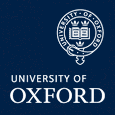|
The second eSAD workshop was held at the OeRC, University of Oxford on the 17th November 2009. Title: Understanding Image-based Evidence. The workshop was organised around the following themes: "Quality of digitization and capture of evidence" session Or how to digitize text-bearing artifacts so that the pieces of evidence relevant to further interpretation are optimally captured and processed? "Evaluating evidence" session Or what are the tools and strategies that can help to evaluate the goodness of a given piece of evidence in a chain of reasoning? "Restoration, palaeographical knowledge bases and classification of letter-forms" session Or how to organize and access palaeographical knowledge in order to use it as evidence in an emerging interpretation?
A report written by an attendee can be found here (Thank you Alejandro!). The talks can be downloaded there. Some pictures of the event are also up in our Gallery. Thank you to all who participated, speakers, respondents and attendees! The feedback on the day was great! Looking forward to our next workshop!
|
|
Written by Segolene Tarte
|
|
Friday, 16 October 2009 14:50 |
Note: If you feel you should have received an invitation and haven't, please get in touch with segolene.tarte(at)oerc.ox.ac.uk Thank you. 10:00 - 10:15 Welcome Coffee
10:15 - 10:30 Introduction: Prof. Sir Michael Brady 10:30 - 12:00 "Quality of digitization and capture of evidence" session Or how to digitize text-bearing artifacts so that the pieces of evidence relevant to further interpretation are optimally captured and processed?
10:30 - 10:45 eSAD research question: Dr Melissa Terras 11:30 - 12:00 Open discussion
12:00 - 13:15 Sandwich lunch
13:15 -14:45 "Evaluating evidence" session
Or what are the tools and strategies that can help to evaluate the goodness of a given piece of evidence in a chain of reasoning?
13:15 - 13:30 eSAD research question: Dr Ségolène Tarte
14:15 - 14:45 Open discussion
14:45 - 15:00 Coffee break
15:00 -16:30 "Restoration, palaeographical knowledge bases and classification of letter-forms" session Or how to organize and access palaeographical knowledge in order to use it as evidence in an emerging interpretation?
15:00 - 15:15 eSAD research question: Henriette Roued-Cunliffe
16:00 - 16:30 Open discussion 16:30 -16:45 Wrap-up: Prof. Alan Bowman --------------------------------------------- Date: Tues. 17th November 2009
Time: 10:00-16:45 --------------------------------------------- |
|
Last Updated on Thursday, 05 November 2009 11:27 |
|
|
Written by Segolene Tarte
|
|
Monday, 28 September 2009 14:49 |
|
Understanding Image-based Evidence
2nd e-Science and Ancient Documents workshop
Investigators: Professor Alan Bowman, Professor Sir Michael Brady, Dr. Melissa Terras
Research Assistant: Dr. Ségolène Tarte
Doctoral Student: Henriette Roued
Following our first workshop, which presented how we are aiding the process of reading ancient and damaged texts through: exploring image processing techniques; mark-up and web-service technology for building and accessing knowledge bases; use of e-infrastructure; and methodologies to identify mechanisms in deploying implicit knowledge and build an ontology, we would like to invite you to our 2nd workshop on 17th November 2009, in Oxford.
We will concentrate on how image-based evidence is understood in the context of the building of an Interpretation Support System (ISS) for ancient or damaged documents. To that end, we will focus on three of our current themes of research:
Evaluating evidence, or what are the tools and strategies that can help to evaluate the goodness of a given piece of evidence in a chain of reasoning ?
Quality of digitization and capture of evidence, or how to digitize text-bearing artifacts so that the pieces of evidence relevant to further interpretation are optimally captured and processed?
Restoration, palaeographical knowledge bases and classification of palaeographical data such as letter-forms, or how to organize and access palaeographical knowledge in order to use it as evidence in an emerging interpretation? [...]
|
|
Last Updated on Monday, 28 September 2009 21:17 |
|
Read more...
|
|
|
|
|
|
|








